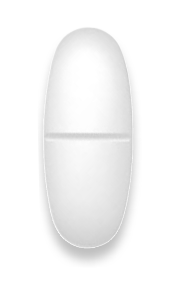Does caffeine wake you up?

One of the most common ways to wake up in the morning is with a cup of tea or coffee. These hot beverages both contain caffeine, a chemical that acts as a stimulant to the central nervous system. 1
Caffeine has a reputation for being a stimulant that helps wake you up by increasing alertness and boosting cognition - endurance athletes, for example, have reported that it increases their performance and improves concentration. 2 There is even research showing that drinking tea can promote convergent creative thinking. 3
However, excessive consumption of caffeine can lead to side effects such as increased heart rate and difficulty concentrating. 4 This begs the question: how much is too much? By understanding how caffeine affects the nervous system, one can be conscious of the amount one consumes, allowing one to reap the benefits of the stimulant without consuming too much.
How does caffeine affect the body?
Caffeine is the most widely consumed psychoactive substance in the world 5 and occurs naturally in plants such as tea and coffee. It counteracts fatigue by interacting with the body's adenosine receptors.
Simply put, adenosine is a sleep-regulating molecule - it binds to the A1 receptor in the brain, causing muscle relaxation and sleepiness. Because the body produces adenosine through mental and physical exertion, it accumulates more and more adenosine throughout the day, which explains why you become increasingly sleepy. 6
Caffeine is an adenosine receptor antagonist - it blocks the adenosine receptors in the brain, which helps keep you from feeling tired and also increases dopamine production. 7
Additionally, it activates neural circuits that cause the adrenal glands to produce more adrenaline, resulting in a boost of energy. 8
In addition, a large-scale study found that moderate coffee consumption was associated with a 21% reduction in cardiovascular disease because it contains bioactive compounds with insulin-sensitizing and anti-inflammatory effects. 9
How long does caffeine work?
Caffeine is rapidly absorbed by the body, with 99% of the chemical being absorbed within the first 45 minutes. 10
Because of its rapid absorption, the effects of caffeine are felt very quickly. Caffeine reaches its peak in the body between 30 and 60 minutes and has a half-life of 3 to 5 hours. 11 This means that if you consume 100 mg of caffeine (which is roughly equivalent to an average cup of coffee 12 ), you can still have up to 50 mg in your body five hours later.
Why caffeine makes some people tired
Some people have reported feeling tired shortly after drinking coffee. There are several possible reasons for this. The first is that while caffeine blocks the brain's adenosine receptors from absorbing adenosine, it does not block its production. This means that when the caffeine wears off, adenosine builds up and waits to bind to the receptors - when this happens, it can cause tiredness. 13
When consumed in large doses, caffeine can have a diuretic effect. 14 If fluid loss is not replaced (by drinking water), dehydration can occur, which in turn can cause feelings of tiredness. 15
There's also a chance that it's not the caffeine that's making you sleepy. If you drink tea or coffee with added sweeteners, you'll experience a drop in energy or "sugar crash" as the glucose leaves your body. 16
Finally, coffee consumption during the day leads to a reduction in the main metabolite of melatonin the following night, a mechanism that disrupts sleep . 17
These scientific findings show that how much and how often you consume coffee is very important if you want to enjoy the positive effects of caffeine.
The importance of using caffeine correctly
It is generally accepted that 400 mg of caffeine per day is considered a safe amount - this is equivalent to about four cups of coffee or two energy drinks. 18 Anything above this can lead to side effects such as increased heart rate or anxiety. 19 In contrast, a low daily dose of 20 mg to 200 mg leads to reports of increased feelings of well-being, energy and sociability. 20 Although there is evidence that there are marked individual differences in response to caffeine, driven by genetics 21 , it is advisable to stick to a low daily dose.
Over time, the body develops a tolerance to the stimulating properties of caffeine, and when you stop consuming it, you may experience withdrawal symptoms such as headaches, drowsiness, and irritability. 22 Slowly reducing coffee consumption can help mitigate these effects.
The timing of caffeine consumption is also important. One study found that even consuming caffeine up to six hours before bedtime caused significant sleep disturbances (due to its five-hour half-life). 23
According to the above studies, a healthy approach to caffeine would mean consuming caffeine in moderation (about 200 mg per day) and limiting consumption to the morning to avoid sleep disturbances.
Doctors also recommend paying attention to the caffeine content of the foods and drinks consumed by checking labels, preparing caffeinated drinks for a shorter time, and also trying decaffeinated drinks. 24
To regulate your caffeine intake for maximum benefit, you can use B・SYNC ON , the world's first clinically tested and proven wake-up aid. 25
It contains 60 mg of caffeine, 60 mcg of vitamin B12, and 5 mg each of zinc and vitamin B5 . These ingredients are contained in a slow-release capsule that delays its release for about 7 hours - take the B・SYNC ON capsule at night and you'll wake up energized and refreshed in the morning, thanks to the release of caffeine and other active ingredients just before you need to get up and glow.
B・SYNC ON is specifically designed to provide you with a slow release of energy throughout the day, meaning you won't feel the need to consume excess caffeine to stay awake.
Sources
- https://www.hsph.harvard.edu/nutritionsource/caffeine/
- https://pubmed.ncbi.nlm.nih.gov/17962708/
- https://www.sciencedirect.com/science/article/abs/pii/S0950329321002421?via%3Dihub
- https://www.ncbi.nlm.nih.gov/books/NBK223808/
- https://www.ncbi.nlm.nih.gov/pmc/articles/PMC3153505/
- https://examine.com/nutrition/how-caffeine-works-in-your-brain/
- https://www.ncbi.nlm.nih.gov/pmc/articles/PMC3153505/
- https://thebrain.mcgill.ca/
- https://academic.oup.com/aje/article/180/8/763/2739131
- https://www.ncbi.nlm.nih.gov/books/NBK223808/
- https://sleepeducation.org/sleep-caffeine/
- https://www.healthline.com/nutrition/how-much-caffeine-in-coffee
- https://www.healthline.com/health/food-nutrition/coffee-makes-me-tired
- https://pubmed.ncbi.nlm.nih.gov/19774754/
- https://www.healthline.com/health/how-to-tell-if-youre-dehydrated
- https://academic.oup.com/jcem/article/96/2/515/2709520
- https://www.dovepress.com/effects-of-caffeine-on-sleep-quality-and-daytime-functioning-peer-reviewed-fulltext-article-RMHP
- https://www.ncbi.nlm.nih.gov/books/NBK430790/
- https://www.mayoclinic.org/healthy-lifestyle/nutrition-and-healthy-eating/in-depth/caffeine/art-20045678
- https://www.ncbi.nlm.nih.gov/books/NBK430790/
- https://www.ncbi.nlm.nih.gov/pmc/articles/PMC4242593/
- https://www.ncbi.nlm.nih.gov/books/NBK430790/
- https://jcsm.aasm.org/doi/10.5664/jcsm.3170
- https://www.mayoclinic.org/healthy-lifestyle/nutrition-and-healthy-eating/in-depth/caffeine/art-20045678
- https://www.nature.com/articles/s41598-021-98376-z











